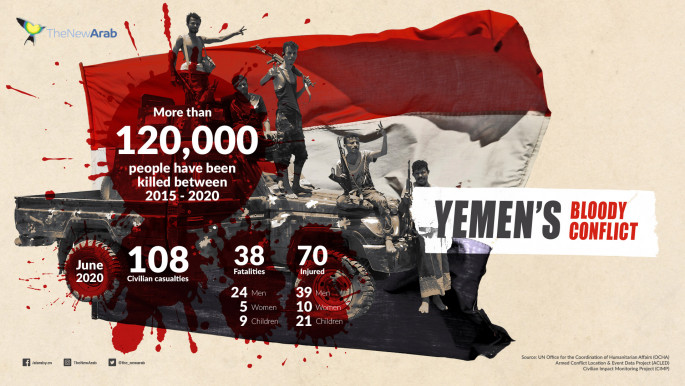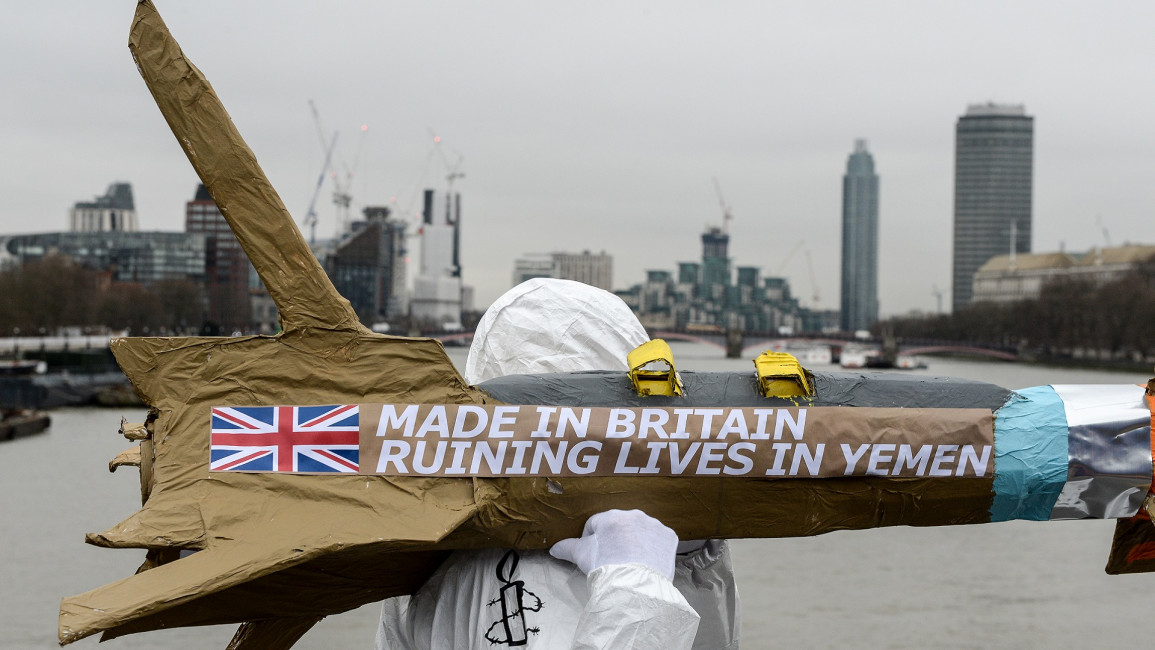Rights groups highlight UK’s role in fuelling Yemen’s conflict
A new report by two non-governmental organisations has highlighted the UK's role in fuelling Yemen's long-running conflict.
SAM for Rights and Liberties, a Yemeni human rights organisation based in Geneva, and the Foundation for Supporting Peace and Democracy (FSPD), a British NGO, called on the UK government to stop supplying weapons to Saudi Arabia and the UAE, who have been carrying out air strikes in Yemen since 2015 against Iran-backed Houthi rebels.
|
|
The Saudi-led coalition's airstrikes in Yemen are often indiscriminate and have killed tens of thousands of civilians, rights groups claim.
The report by the two NGOs notes that arms purchases by Saudi Arabia accounted for 41 percent of the total volume of UK arms exports between 2010 and 2019, while 19 percent of arms imported to Saudi Arabia came from the UK.
The Campaign Against the Arms Trade (CAAT) says that the total published value of UK export licences for military exports to Saudi Arabia since the start of the Saudi-led bombing campaign in Yemen is £5.4 billion ($7.2 billion).
Read also: Muslim-British soldier's refusal to serve over UK-backed Yemen war is a heroic cry of conscience
However, CAAT estimates the real value of the UK’s military exports to Saudi Arabia during this period could be as high as £16 billion ($21.4 billion).
The report identified the companies Excelitas, BAE Systems, VestGuard UK, and Rolls-Royce as the main UK exporters of arms to Saudi Arabia.
The exports included £2.9 billion ($3.3 billion) of aircraft, helicopters, drones, and related equipment and £2.5 billion ($3.8 billion) of bombs, missiles, grenades, and related equipment.
The report also said that CAAT had estimated the total value of the UK's export licences to the UAE since the bombing of Yemen began as £715 million ($955 million).
Compared to other countries, such as the US and France, the UK is a relatively modest supplier arms to the UAE.
However, the report added that "scores of images and videos" had been tracked showing Saudi and Emirati backed combatants in Yemen with UK-made weapons and quoted Amnesty International as saying that there was "ample evidence that the influx of irresponsible weapons to the Saudi-led coalition has inflicted severe harm on Yemeni civilians".
The UAE and Saudi Arabia intervened in Yemen ostensibly to back the internationally-recognised government of President Abed Rabbo Mansour Hadi, after the Houthis seized control of the Yemeni capital Sanaa in 2015.
However, the UAE has also backed a southern Yemeni separatist movement that has challenged President Hadi's authority and the conflict has become increasingly brutal and complex, with over 100,000 civilian casualties.
Yemen was already one of the poorest countries in the Middle East before the war began and today millions of Yemenis face starvation as a result of the conflict.
The report called on British MPs to "forgo support for all new and existing arms export licences" secured by the UK government, adding that the Group of Eminent International and Regional Experts on Yemen had said that "there are no clean hands in this conflict".
Follow us on Facebook, Twitter and Instagram to stay connected



